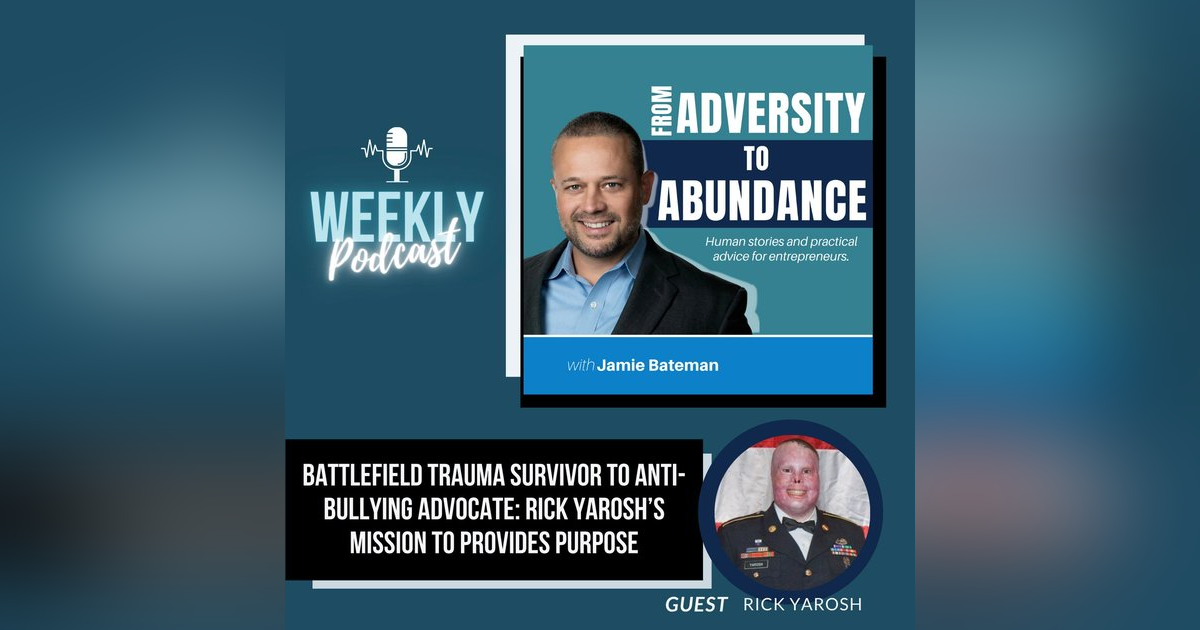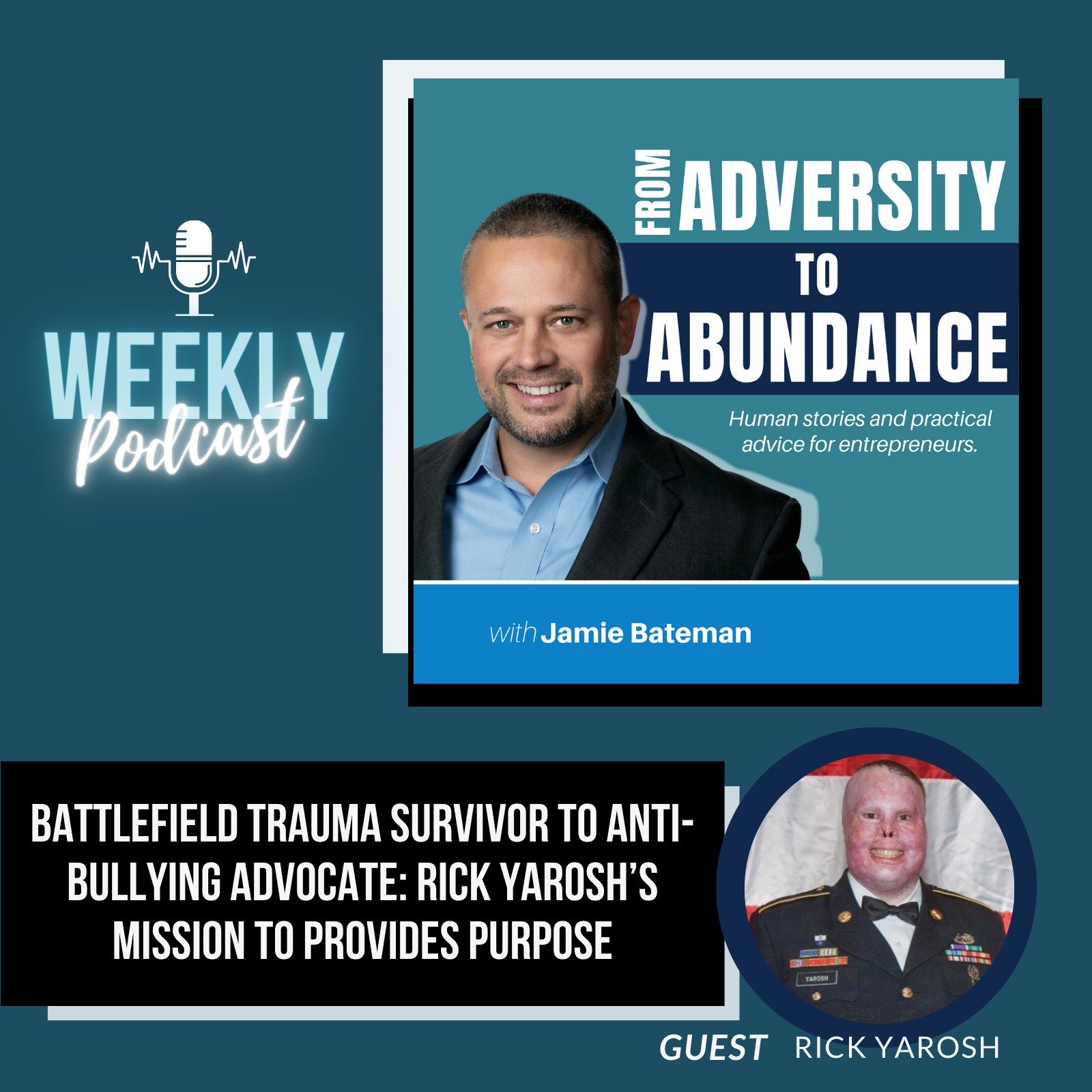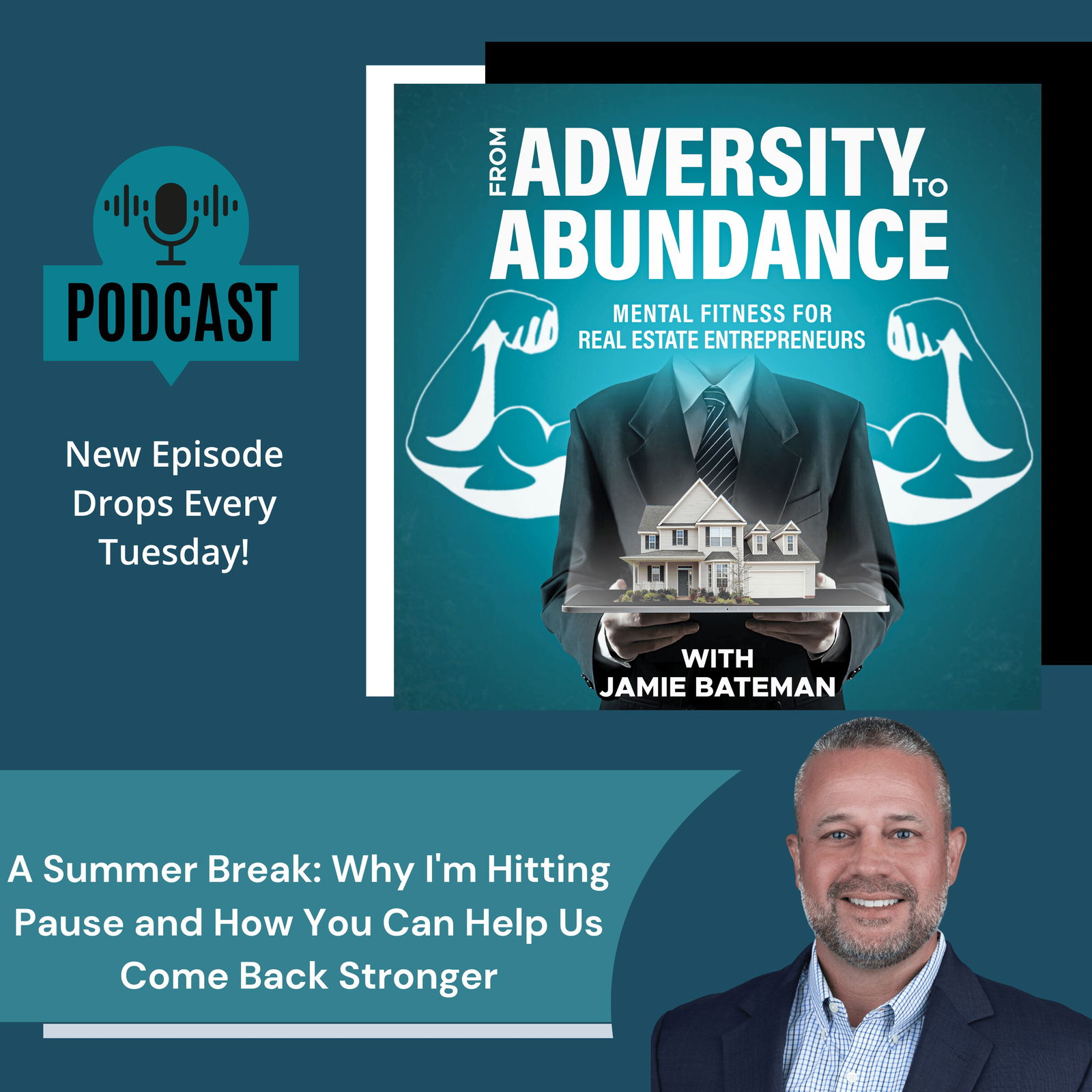Battlefield Trauma Survivor to Anti-Bullying Advocate: Rick Yarosh’s Mission to Provide Purpose


Meet Rick Yarosh, a man with an extraordinary story of perseverance and a passion for helping others find hope in the face of adversity. A retired US Army sergeant, Rick served in Iraq for nine months before being severely injured in a devastating explosion in 2006. Through his journey of recovery, Rick turned his hardships into a purpose-driven life. As a motivational speaker and a key member of Sweethearts and Heroes, Rick has dedicated himself to sharing his powerful story with military veterans and others who are struggling to find meaning after trauma. With an engaging sense of humor and unwavering resilience, Rick is the perfect guest to inspire our audience on finding purpose after trauma.
In this episode, you will be able to:
- Learn the art of bouncing back from adversity and finding the strength to face any challenging situations.
- Transform traumatic experiences into a source of purpose and personal growth.
- Master resilience and equip yourself with effective tools to weather life's storms.
- Enhance your understanding of the powerful roles of kindness and empathy in personal success and strong relationships.
- Value the support of others in times of struggle and become more open to assistance.
“ Hope stands for: Hold on, possibilities exist. If you don't hold on, you're never going to find out the amazing possibilities that exist for you.”
“And I think too many times when we have something really awful that happens to us or we see it as really awful, we don't talk about it. And we got to talk about it. We got to become comfortable with it. Because what I know is I can't change what happened to me, but I can change how I look at it. And if I talk about it more, that helps me change how I look at what happened.”
Adversities Rick had to overcome:
· Being severely injured after he was engulfed in flames while in military
· Mental toll impacted by the challenges he faced
· Lost his leg in the same incident
· Feeling of hopelessness
Abundance Rick created:
· Founded Sweethearts and Heroes organization
· Was a US Army Sergeant
· Discusses how he discovered his new purpose as a public speaker, despite being terrified of public speaking
· Owns a restaurant that he bought from his mother during the pandemic
Books and Resources
Connect with Rick Yarosh:
LINKEDIN: https://www.linkedin.com/in/rick-yarosh-0381a966/
WEBSITE: https://www.sweetheartsandheroes.com/
YOUTUBE: https://www.youtube.com/@SweetheartsandHeroes
FACEBOOK: https://www.facebook.com/sweetheartsandheroes/
INSTAGRAM: https://www.instagram.com/sweetheartsandheroes/
TWITTER: https://twitter.com/SweetheartHero
Haven Financial:
https://www.myfinancialhaven.com/jamiebateman/
ATTENTION:
Unlock the secrets to a transformative life with “From Adversity to Abundance: Inspiring stories of Mental, Physical and Financial Transformation”. Buy your copy now and embark on a journey from challenges to triumphs!
AMAZON: https://www.amazon.com/dp/B0CGTWJY1D?ref_=pe_3052080_397514860
Connect with us
WEBSITE: https://www.adversity2abundance.com
Leave us a rating or review: https://www.adversity2abundance.com/reviews/new/ or here
Got comments, feedback or suggestions? We’d love to hear it! https://www.adversity2abundance.com/contact/
Follow From Adversity to Abundance Podcast
FACEBOOK: https://www.facebook.com/profile.php?id=100089126144055
INSTAGRAM: https://www.instagram.com/adversitytoabundancepodcast/
LINKEDIN: https://www.linkedin.com/company/89949391/admin/feed/posts/
YOUTUBE: https://www.youtube.com/@FromAdversity2AbundancePodcast
Connect with Jamie
BOOK: From Adversity to Abundance: Inspiring Stories of Mental, Physical, and Financial Transformation
LINKEDIN: https://www.linkedin.com/in/jamie-bateman-5359a811/
TWITTER: https://twitter.com/batemanjames





